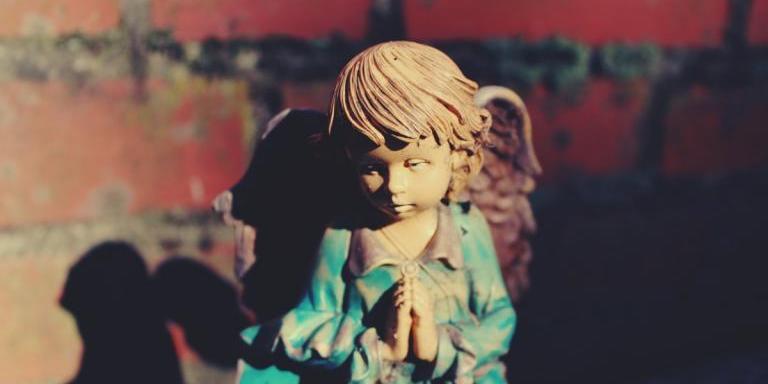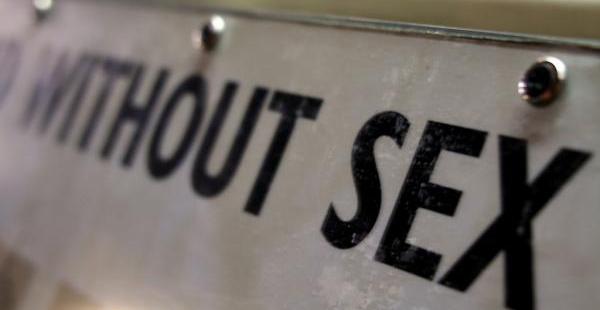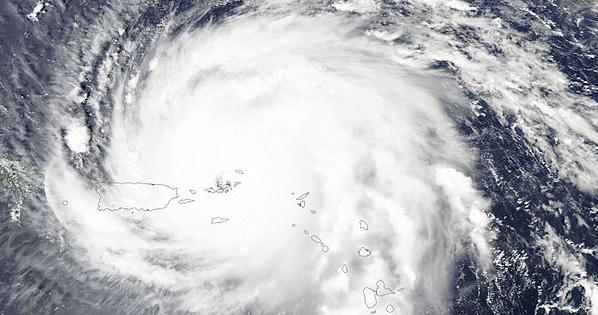When will the kingdom finally come? When will creation be healed? When will evil be overcome?

It’s been nearly 2000 years since the life, death, and resurrection of Jesus. Christians have been waiting a long time for the promises of restoration, redemption, and reconciliation to come true. Why the long “delay of the parousia” (return)?
A few weeks ago, I posted a review of Thomas J. Oord’s excellent book, The Uncontrolling Love of God. After summarizing his argument and describing the merits of the book, I interjected my own conviction.
Oord, an “open and relational theist” (or, the better known term: process theist), believes that God is essentially love. Because God is essentially love, God not only will not, but cannot, fiddle with the free will of creation in a coercive manner. God’s love is uncontrolling. Since God is essentially love, God cannot interfere with the autonomy of creation.
God is metaphysically constrained. Not just for the present, but for the (eternal/everlasting) duration of creation and of God’s own “life.” The constraint on God–the “divine limitations”–explains evil and suffering.
For Oord, the question: “Why does God allow evil and suffering?” is the wrong question. God doesn’t allow it. Rather, God can’t prevent it.
The benefit of this theology should be obvious: God is love. Human and creational freedom (and relative autonomy) is sustained. What people do (or don’t do) really matters. God is not a dictator or tyrant, but–to invoke Whitehead (the father of process theism)–God is the “fellow sufferer who understands.”
But the drawback is obvious, too: There is no firm basis for hope that creation will one day be redeemed, evil will be overcome, death will be defeated. There is no firm basis for confidently believing that God will get what God wants: the salvation of all and the redemption and healing of creation (1 Tim 2:4; 2 Peter 3:9; Rom 8:20-21).
It’s hard to imagine universal reconciliation, the undoing of evil, and the establishment of justice, without a divine intervention (even if that requires some kind of “coercion”).
But, as Tom asked me in reply to my post, if you believe that God can intervene–presumably at any time–then why does God wait? Why hasn’t evil already been destroyed? Why do countless people continue to suffer, often in horrific ways? Why the continued “groaning of creation”?
As Paul put it (nearly 2000 years ago), “We know that the whole creation has been groaning as in the pains of childbirth right up to the present time. (Rom 8:22).
Well, we’re still in the “present time.” We’re still groaning.
God still “waits.” But why?
This may be the hardest question for theology to answer. I have no truly satisfactory answer. The first possible answer is that, well, there is no God. And if there is no God, we’ll be “waiting for Godot/God” forever, or until we end up destroying ourselves.
But, let’s assume the much more hopeful notion of Christian tradition that there is a God and that Christ was the incarnate form of God, and that Christ is indeed coming back to overturn the tables of evil.
In very brief form, I would say a few things (and I invite the responses/other suggestions of readers):
- First, I do believe, like Tom does, that God has limited Godself. (I affirm the “divine self-limitation” model of divine providence; one of the alternatives Oord mentions to his own “essential kenosis” model). I think Moltmann, in The Coming of God, offers the most compelling articulation of divine self-limitation. In the act of creation, God limits his own omnipotence, creating a “space” outside Godself for something else to be. In this self-limitation, God does make a decision, as it were, to relinquish power and control–thus explaining why evil/suffering happens.
- In the fullness of time (eschatological consummation), God will come back into creation in a different way. God’s “home,” or “dwelling place” will be with mortals (Rev. 21:3-4). And yes, this means that God will one day intervene.
- But why hasn’t God done this already? Why wait? Because there’s something of deep value which is inherent to the present time, a time in which God is somewhat withdrawn from creation, or somewhat “hidden.” This point resonates with open and relational theology: Freedom, relative autonomy, the ability for creation to continue to “create itself,” and for human beings to make real choices–whether good or bad, life-giving or life-taking–are highly valued. In short, the freedom of creation makes possible a relationship with God that is potentially beautiful and yet fraught with peril.
- Epistemic distance. I take this phrase from John Hick, who suggests that the distance between God and world creates an opportunity that would not be available if God were “closer.” If God were a cosmic genie, intervening miraculously, at our beck and call, making himself visible to us whenever we asked or desired, we would not need to deal with the existential angst which results from the hiddenness of God. The hiddenness is the consequence of God’s epistemic distance from us (“epistemic” has to do with “knowledge”). God cannot be known in the same way that other creatures can be known. This difficulty is especially acute for those who recognize and acknowledge the paradoxes of life, the difficulty of belief, and the problem of evil and suffering. But this epistemic distance creates the possibility for the development of faith. This development of faith is like exercising a muscle. We grow in faith when we have to exercise it. We have to exercise it when evidence or proof is lacking.
- Anticipation is an inherent good. It’s cliche but true that anticipation is often more enjoyable than the arrival of the anticipated moment. Especially as kids, perhaps, we are brimming with anticipation. Christmas morning, birthdays, the first day of school and the last day of school. But as adults we anticipate, too. Graduation days, weddings, first day of the new job, and so on. Anticipation is an inherent good, and sometimes it’s at least as enjoyable as the arrival of the thing anticipated. If the promises of a “new creation,” a healed, restored, reconciled world turn out to be true, then surely the anticipation of the new creation will not come close to matching its arrival. And further, the anticipation of the new creation (and the destruction of death and evil) cannot outmatch or outweigh the heaviness of suffering and injustice that so many presently experience. Nonetheless, I think we are supposed to relish the anticipation of the “coming of God.” Often that anticipation will be of the “groaning” sort, but not always. Sometimes it will be like the anticipation of Christmas morning, or better still: of Easter morning. But it’s probably best to think of anticipation here is a general, collective sense: creation (as a collective) waits in anticipation for the coming of God…
Another thought related to anticipation is this: God invites us all–everyone in each new generation–to participate in the life of the kingdom of God in a broken, fallen world. We all get our chance, we all have our choices, in the context of an unfinished creation–invested with freedom and relative autonomy–to contribute to God’s coming. The scenario will be different–infinitely better–but still different, when God comes to be “all in all.”











